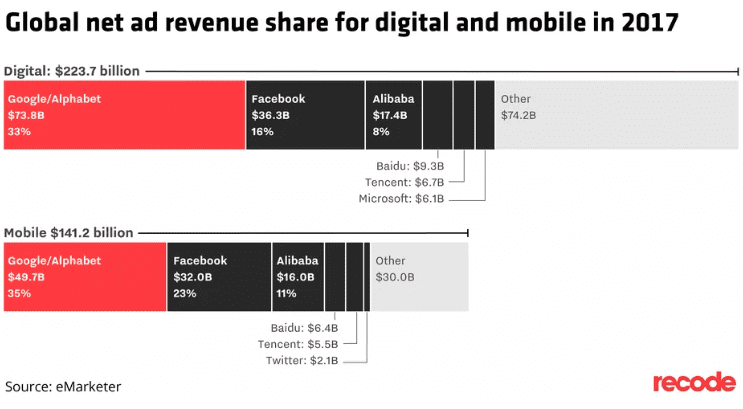What will voice search do to the landscape of digital marketing?
The internet has carved out its place in society as one of the most important things in day to day life. You could argue that it is the most essential technology in use in the world at this time. The marvel of the internet’s size is only superseded by our incredible technology that goes into searching it. It’s no news that search/SEO is key to power on the internet and when it comes to power, Google sits at the top. I’m going to look into how voice search is looking to change the landscape of search marketing and the ad revenue around it.

But when I use them it never understands me…
Voice recognition software is nothing new, with Audrey recognizing numbers all the way back in 1952. There have been several applications and uses for it since then, currently one of the most common is the voice receptionist function that most large companies use to assist with customer service routing.
Voice typing is a station that we stopped at on the way to where we are today. It wouldn’t be too harsh to say that voice type software in the 90’s-00’s wasn’t something to be desired. Often more time was spent correcting the text than if it had been written in the first place.
This period led to a lack of trust in voice recognition software as people quite simply did not see the benefit. This is not the case anymore, with companies spending vast sums of money to improve the software. We are now in an age where most accents and tones of voice are easily recognizable for software to understand. There is only the odd mistake opposed to 70-80% of the sentence being completely incorrect. So now those with a thick accent can join in with the SIRI fun like the rest of the party.
Who uses voice search anyway?
When people think of voice search what springs to mind is the smartphone giant iPhone and their concierge Siri. Siri is not the only voice concierge with Cortana entering the fray, Google and most recently the surge in Alexa from Amazon. This in turn actually answers the above question with, a lot of people. 35.6 million Americans used a voice-activated assistant device at least once a month in 2017 according to eMarketer. That is a usage number which will turn a lot of heads in marketing as to how they can cash in on such usage.
How do people use voice search?
Voice search is an interesting progression in internet search as it has had to match or improve on what was there. This has meant an incredible amount of effort has been put into making sure its uses are in line with the capabilities of Google. If I ask for the weather in a certain place at a certain time, then Google will tell me instantly and equally if I need to know the square root of 76236 Google will tell me in a similar amount of time.

Shopping online is a huge part of our lives and this is where voice has also had to meet requirements of the user. In the UK alone 18% of all purchases were made online in 2017. This has meant that shopping requests of all kinds have been integrated into to voice assistants. So may it be the flights you need or the next showing of Avengers at your cinema, your assistant will get the information for you. Alexa has taken things even further with users being able to get Alexa to order things for you from Amazon.
Conversational search is on the rise…
Google has reported that 65% of all voice search queries are now delivered in a conversational manner. So people are no longer asking “Marketing advice online” but instead are asking “Where is the best place for me to get marketing advice online?”
It is important that SEO tactics of businesses take this into account and think about all the different ways that your business may be searched. Not just keywords but the way in which the keywords are used

Have some voice search stats as a little break…
There is no denying that voice search is here and here to stay. We took a looked the growth of digital assistants in our chart of the day Instead of going into detail for this, I am going to quickfire the 10 most impressive stats I have found on voice search:
- The voice recognition market will be a $601 million industry by 2019, per Technavio.
- As of January 2018, there were an estimated one billion voice searches per month, per Alpine.AI.
- 1 in 4 shoppers used voice assistants in their holiday shopping during the 2017 season, per CTA.
- 65 percent of people who own an Amazon Echo or Google Home can’t imagine going back to the days before they had a smart speaker, per GeoMarketing.
- 41% of people who own a voice-activated speaker say it feels like talking to a friend or another person, per Google.
- 25% of individuals ages 16-24 use voice search on mobile, per Global Web Index
- 70.6% of Americans who used a voice-enabled speaker at least once a month in 2017 used an Amazon Echo, per eMarketer. 23.8% used a Google Home.
- Grocery shopping accounted for 20% of voice shopping in 2017, per OC&C Strategy Consultants. This compared to clothes shopping, which accounted for just 8%.
- 52% of voice-activated speaker owners would like to receive information about deals, sales, and promotions from brands, per Google. 39% would like to receive options to find business information.
- OBLIGATORY – 50% of all searches will be voice searches by 2020, per comScore.
What does this mean for digital marketing?
For many, the answer is not truly known as to where voice search will take us. One thing we can be sure of is that it will disrupt the current terrain of marketing. The screen aspect of the internet and search has been integral to the business side of it. Everything has been centered around SEO and optimization of UX and UI but when there is no screen then these aspects become obsolete. This is why the Amazon Echo, Google Home and the rest of voice assistants are more disruptive than say, Siri, a mobile voice assistant. Advertising is a huge part to the internet and creates incredible amounts of revenue for companies. The figures are truly astronomical for the giants.
In a future where devices only give a few (Or even just one) answer to queries, then ranking and placement on the web completely changes. How will you make sure your company is coming up in relevant searches? Will companies be able to have sponsored search results in a “Google Advoice” dystopian future? All of these are questions at this time we don’t know the answer to, but it is important businesses gear up for these changes. The stats above tell a story of change in internet usage that will rock the foundations as we know it.
